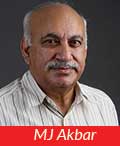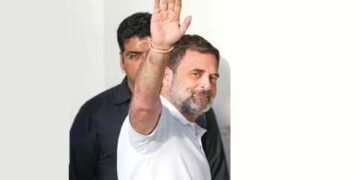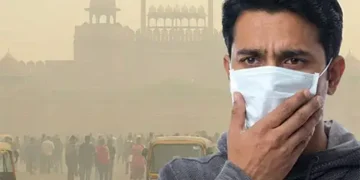 CAN you win a defeat? Possibly. If your sights are set low, you can always rejoice after missing the bull’s eye by some distance. This is not advocacy for the cockeyed. It is a recognition of the artful management of expectations, always good politics in that gloomy space called the waiting room. Congress has developed expertise in this art. Statistics tend to be a little less helpful.
CAN you win a defeat? Possibly. If your sights are set low, you can always rejoice after missing the bull’s eye by some distance. This is not advocacy for the cockeyed. It is a recognition of the artful management of expectations, always good politics in that gloomy space called the waiting room. Congress has developed expertise in this art. Statistics tend to be a little less helpful.
The last election which brought Congress to power was in 2009 when it won 206 seats with 28.55 per cent of the vote, while BJP slumped to 116 seats and 18.80 per cent. Fifteen years later, BJP has 240 seats with 36.56 per cent of the vote and Congress has 99 MPs with 21.19 per cent. That should shift the perspective. In 2024, Congress did better out of allies than the allies did out of Congress because the latter had less to offer. If it took 10 years for Congress to rise from 44 seats to 99, then the party should reach 200 seats in Lok Sabha by 2034 at the present rate of progression.
Semantics apart, the question before Congress is whether its brand has yet recovered. It cannot become the natural alternative to BJP as long as it is marginal in the 180-odd seats along the belt from Delhi Yamuna to Diamond Harbour and the Sagar island in Bengal where the Ganga meets the sea; and vulnerable in a big-ticket state like Maharashtra and middle India where it faltered again.
Significance of 1969
The past can be useful. The first instance of Congress slippage occurred in the 1967 elections when it diminished to a slim majority against a non-existent Opposition. In 1971 Indira Gandhi led Congress to a spectacular recovery in a premature General Election by reinventing her party through a split in 1969 that ripped apart the status quo. Her heirs do not fully appreciate the significance of 1969. In the 1960s and 1970s, Opposition parties used to ask for votes on the sterile plank that they were not Congress. Congress now asks for votes on the equally fragile plank that it is not BJP. This is a painkiller, not a remedy. A serious political objective needs a compelling positive programme that defines a better future for the electorate and the nation through a policy framework. This is more difficult than holding press conferences.

Miracle of democracy
Even miracle can wither in the winter of time. One of the outstanding miracles of Indian democracy has been the sudden rise and sustained achievement of Naveen Patnaik, intellectually more a child of the liberal West than the rustic hardships of his state, Odisha. His father Biju Patnaik’s legendary life helped, but no inheritance lasts more than one term in the tough playing fields of our electoral system. I knew and admired the charismatic Biju Patnaik and have never really met the son, but will assert that history will accord Naveen an equally luminous chapter. Naveen Patnaik’s era is an indelible part of Odisha’s long march to modernity.
For a quarter century Naveen Patnaik sped along a one-way autobahn, eliminating competing traffic with unsuspected finesse, eventually to discover that fatigue and crawl exhaust just as easily as speed. It is entirely apposite that his splendid success over two decades in power has been complemented by the grace with which Naveen Patnaik has said au revoir. No fuss, no moans, no complaints, no pettiness, no entitlement, no bile against the victor. If I can take the liberty of paraphrasing what he might be thinking: Democracy brought me to power; democracy has told me to take a rest. If anyone deserves a Bharat Ratna in 2025 it is Naveen Patnaik.
































